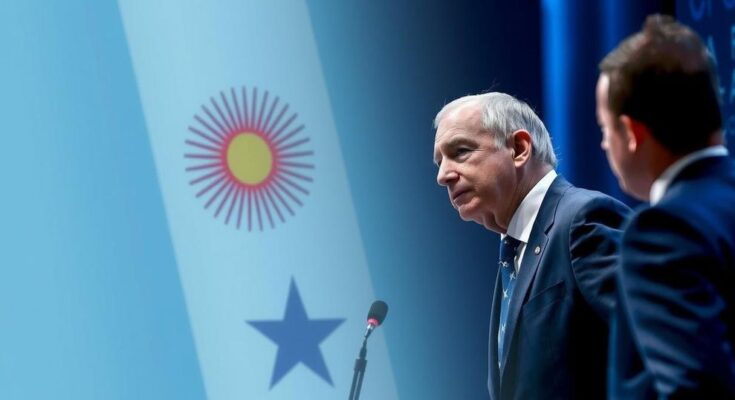Argentina has withdrawn its negotiators from the Cop29 summit in Baku, under the instruction of President Javier Milei’s government. This withdrawal raises alarms over the future of the Paris Agreement, as Milei has previously dismissed climate change. The decision has significant implications for Argentina’s role in global climate negotiations and raises concerns about international climate policy stability.
Argentina has withdrawn its negotiators from the Cop29 summit in Baku, Azerbaijan, a move that raises significant concerns regarding the future of the Paris Agreement. Under the leadership of far-right president Javier Milei, who has previously dismissed climate change as a deception, the withdrawal occurred just three days into the negotiations. More than 80 representatives were slated to participate for two weeks, focusing on vital discussions surrounding climate finance for energy transition. Ana Lamas, Argentina’s undersecretary for the environment and the only senior official remaining after the dissolution of the environment ministry, confirmed the withdrawal as directed by the Ministry of Foreign Affairs. This decision attaches apprehensions to Argentina’s commitment to international climate accords in light of Milei’s controversial stance on environmental issues. Lamas clarified that the withdrawal pertained only to Cop29 and not a full exit from the Paris Agreement. However, the action, coupled with Milei’s conversations with former US President Donald Trump—who has threatened a second withdrawal from the Paris Agreement—paint a bleak picture for the future of global climate collaboration. Experts express concern that Argentina’s absence undermines its voice in critical negotiations, particularly against the backdrop of increasing climate challenges.
The backdrop of this situation involves Argentina’s context under President Javier Milei, an administration that has exhibited skepticism towards climate science. Upon taking office, Milei’s government emphasized economic growth over environmental regulation, contributing to fears regarding the country’s engagement in international climate initiatives. While Argentina has traditionally been involved in climate negotiations, following recent elections, this trajectory has shifted considerably, leading to worries from environmental advocates about future commitments under Milei’s leadership, especially when considering the broader implications for global climate policy.
In conclusion, Argentina’s withdrawal from the Cop29 discussions represents a significant deviation from its historical role in climate negotiations. This decision not only diminishes Argentina’s ability to influence climate finance discussions but also highlights the potential instability of international agreements like the Paris Accord under governments led by climate skeptics. As global concerns about climate change escalate, the actions of nations such as Argentina become critically important in shaping a collaborative approach to this pressing issue.
Original Source: www.theguardian.com




